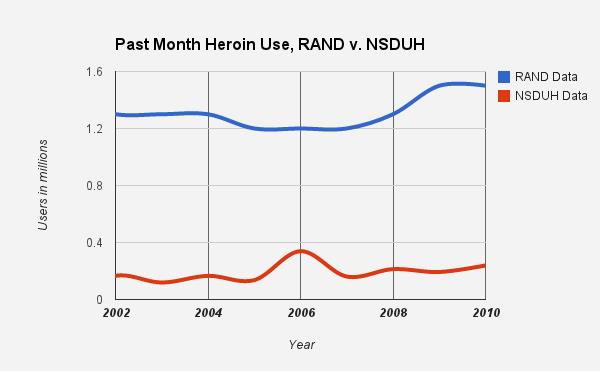We’re currently working with a collaboration of local entities on planning for substance abuse services, so when I saw this article last week, it piqued my interest.
It’s not a long read, but if you’re pressed for time I’ll boil it down: People lie when asked about hard drug use. To get a real picture of the scope of the problem, a survey called ADAM (Arrestee Drug Abuse Monitoring Program) which includes biomedical data tells a vastly different story, especially about use of heroin, cocaine and other hard drugs than a simple respondent survey, the National Survey on Drug Use and Health (NSDUH). Funding for ADAM has now been eliminated as part of federal budget cuts. Sadly, we’ve seen the same story play out for a number of other federal data sources (catalogued nicely here), including Census and Bureau of Labor Statistics.
So why does this kind of obscure federal data matter for local government administrators, non-profit executives and community leaders? Because in this day and age, you’ve got to have the data to justify your need to exist. Whether it’s the needs assessment portion of a federal grant application, the outcomes you’re reporting to a foundation, or a meeting with a potential corporate sponsor, you need accurate and relevant data to tell your story. Call it return on investment, data-driven decision making, or outcome measurement, it’s the language that our elected officials, board members, and funders now speak. In competitive funding environments, those social sector leaders who can point to strong data about the need for their programs – as well as the efficacy of the solution they’re promoting – will set themselves apart.
Which is why the trend of diminishing federal data sources is worrisome. Pay attention to conversations about preserving good data sources at all levels of government. It may be just what you need to make your next pitch.
What federal, state, and local sources of data do you rely on to tell your story? Has your organization or initiative been impacted by funding cuts for data? What resources do you rely on to help you wade through obscure data sources? Share your comments below or on our Facebook or Twitter pages.
Note: Graph published with the permission of the author.

